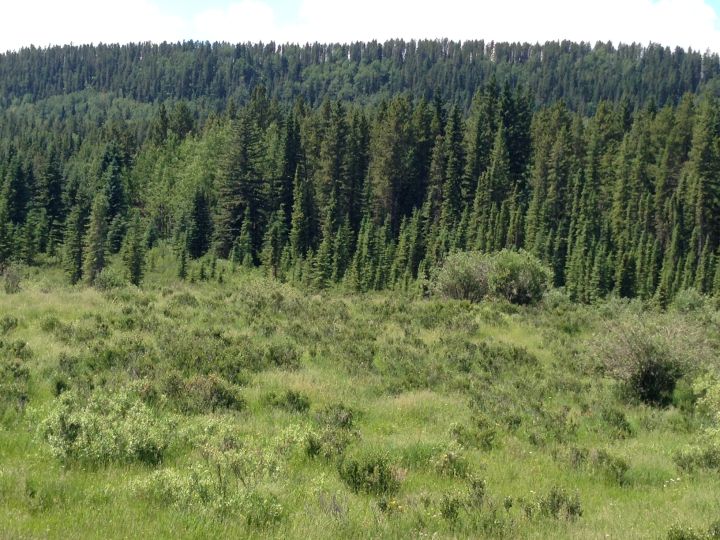A grizzly bear attack in the Water Valley area northwest of Calgary is raising questions about the practice of geocaching—an outdoor activity similar to a treasure hunt in which people try to find containers or small prizes by using GPS coordinates.

READ MORE: Bear attack in Water Valley area northwest of Calgary
“I remember when geocaching became popular and I was like, ‘Oh dear, this is definitely concerning,’” said Kim Titchener, owner and founder of Bear Safety & More. “I was walking on a trail and all of a sudden, these two people popped out from underneath a tree. I just screamed… ‘Oh my gosh, what are you doing?’ And they said, ‘We’re geocaching.’
“This is probably going to result in somebody getting hurt at some point because you’re quietly moving, you’re crawling underneath trees and bushes trying to find things, and so I think at the end of the day, I could totally see somebody surprising a bear in a situation like that.”
A man in his 50s is recovering after encountering a bear that RCMP said charged him and tried to drag him into the bush on Sunday afternoon.
Watch below from July 2: As Lisa MacGregor reports, the man was in a remote area when he was attacked by the bear.

After a brief struggle with the bear, the man was able to get away in his vehicle and drive to a store to get help from Park Rangers.
Paramedics said he was taken to hospital with non-life-threatening soft tissue injuries throughout his body.
A fellow geocacher told Global News the victim entered a “did not find” log after he was attacked by the bear. It reads as follows:
“Didn’t find it… I will type more when I am more up to the task… The search was cut short by local wildlife… Not sure I will be back for a while.”
Titchener said bear attacks are extremely rare, but when they happen, it’s usually a defensive attack in which someone is alone or in a small group, not making a lot of noise.

Get daily National news
“I’ve been trying so hard to get that message out about travelling in groups, carrying bear spray, and there’s still obviously a lot of work to do to get people to understand that that will really reduce your chance of getting hurt.”
Watch below from July 2016: University of Calgary outdoor centre instructor and guide Rachel Oggy joins Global News with some advice on bear safety when planning a trip into the backcountry.

Titchener said she doesn’t have all the details of Sunday’s attack, but suggested when a bear is surprised at close range, it may knock a person down.
“You sometimes see a bear drag a person off into the bushes in cases where they’ve decided that the person is a food source, so they’re going to food cache them,” she said. “But this sounds much like what I would consider a close-range defensive encounter, where a person surprised the bear, the bear knocked them down, made sure they were no longer a threat and then ran away. That’s most likely what occurred here. It’s probably not a predatory case.”
She reminds people not to run from bears, despite human instinct.
“If you do surprise a bear at close range, if it has cubs or a food source, it starts to show a lot of aggression—like puffing and salivating, maybe jaw-popping, huffing and puffing, making lots of noise at you — it’s a sign you need to back away and give the bear some space,” she said. “And if the bear does come towards you, you want to spray it with bear spray. And if you don’t have bear spray, you want to drop to the ground to protect your body, protect your neck, don’t make any noise, wait until the bear attack ends before you get up and try and get out of the situation.”
With files from Global’s Lisa MacGregor and Tracy Nagai




Comments
Want to discuss? Please read our Commenting Policy first.